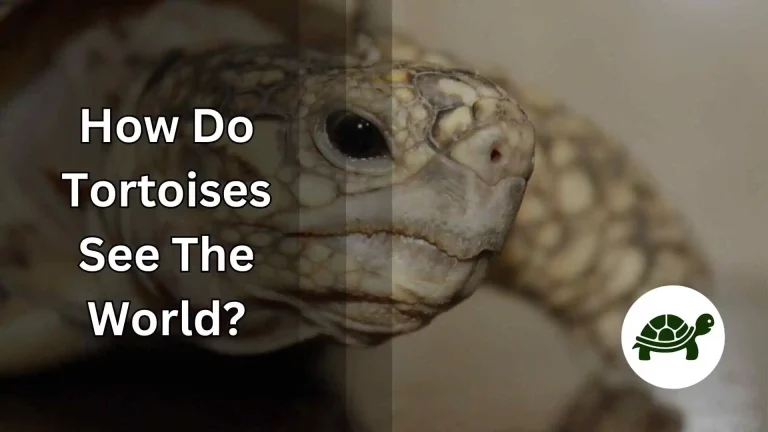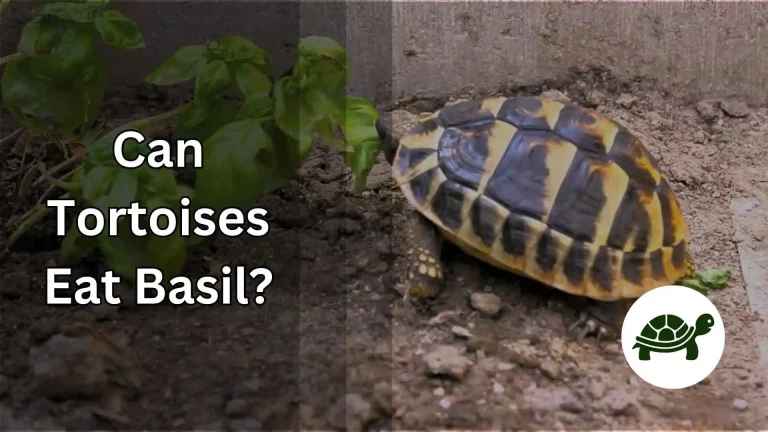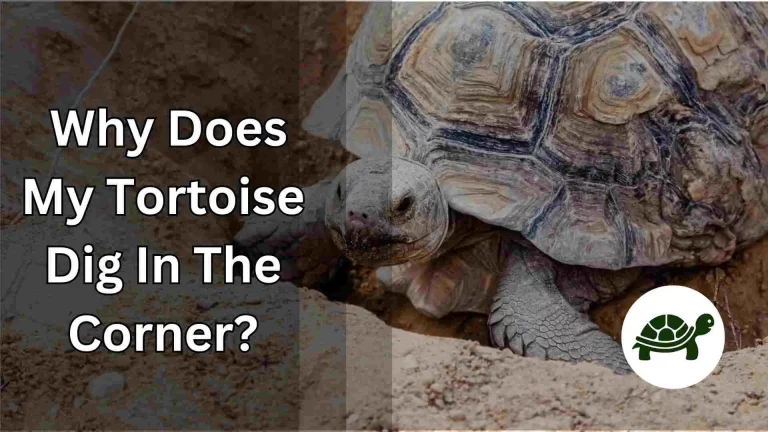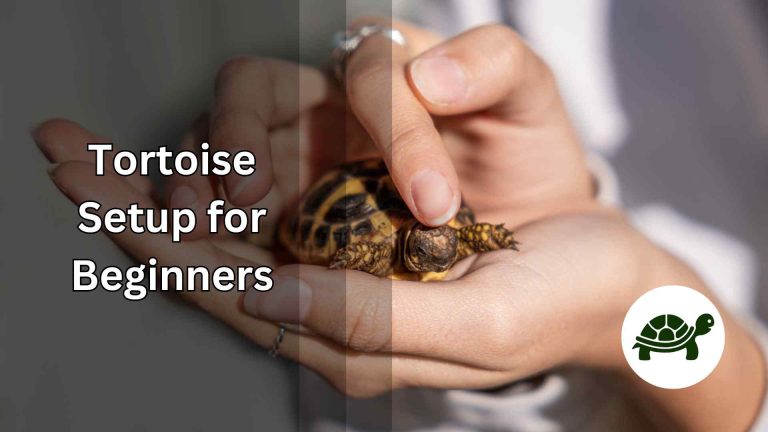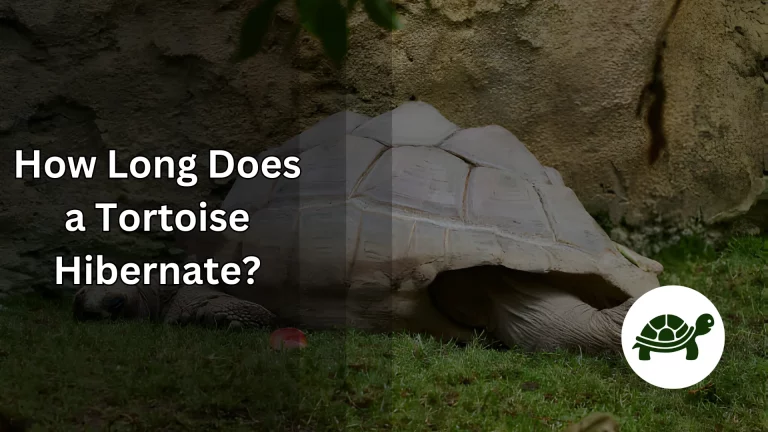How To Tell If Your Tortoise Is Happy? – Know How
In the world of pets, tortoises hold a special charm with their slow pace and ancient demeanor. While they might not wag their tails or purr like some other pets, they have their unique ways of expressing contentment. Understanding the emotions and well-being of our shelled friends is crucial for ensuring their happiness and longevity. Many misconceptions float around about reptile emotions, often leading to misunderstandings about their needs and behaviors.
Tortoises have been cherished companions for thousands of years, and over time, keen observers have noted signs of their well-being. Just like any other pet, a tortoise’s environment, diet, and care play a significant role in its emotional state. As a tortoise owner or enthusiast, recognizing these signs is paramount in fostering a happy and healthy life for your pet.
In this guide, we’ll delve deep into the signs that indicate a happy tortoise, as well as touch upon potential red flags that might suggest otherwise. With the right knowledge and a watchful eye, ensuring a joyful life for your tortoise becomes an enriching journey for both of you.
Understanding Tortoise Behavior
Tortoises, with their prehistoric appearance and contemplative nature, have fascinated humans for generations. When you consider that some species can outlive us, it becomes even more evident why understanding their behavior is so crucial. While they might not exhibit the overt emotional cues that mammals do, tortoises have a rich tapestry of behaviors that communicate their feelings and needs.
For centuries, tortoises have found their place in human households, not just as pets, but also as symbols of wisdom and patience. This close association has allowed us to observe and interpret various behaviors. For instance, the way a tortoise moves about its environment can tell us a lot about its comfort level. A tortoise exploring its surroundings with curiosity is often a sign of contentment, while frequent hiding might indicate stress, depressed or discomfort.
However, like all creatures, tortoises are individuals. While there are general behaviors common to most tortoises, each one can have its quirks and unique signals. Regular observation and interaction are key to deciphering these individual behaviors. By investing time in understanding your tortoise’s behavior, you not only ensure their well-being but also deepen the bond between you two.
Signs of a Happy Tortoise
Every tortoise owner dreams of providing a home where their shelled friend thrives with joy. Recognizing a happy tortoise, however, can be a delightful puzzle. With their unique and subtle cues, tortoises communicate their contentment in ways that require a keen, observant eye.
1. Active Exploration

Just like us, a curious mind often equates to a happy one. When a tortoise is seen actively exploring its habitat, whether it’s a new corner of its enclosure or a familiar path in your backyard, it’s typically a sign of contentment. An environment that invites exploration also keeps their minds stimulated and body active.
2. Healthy Appetite
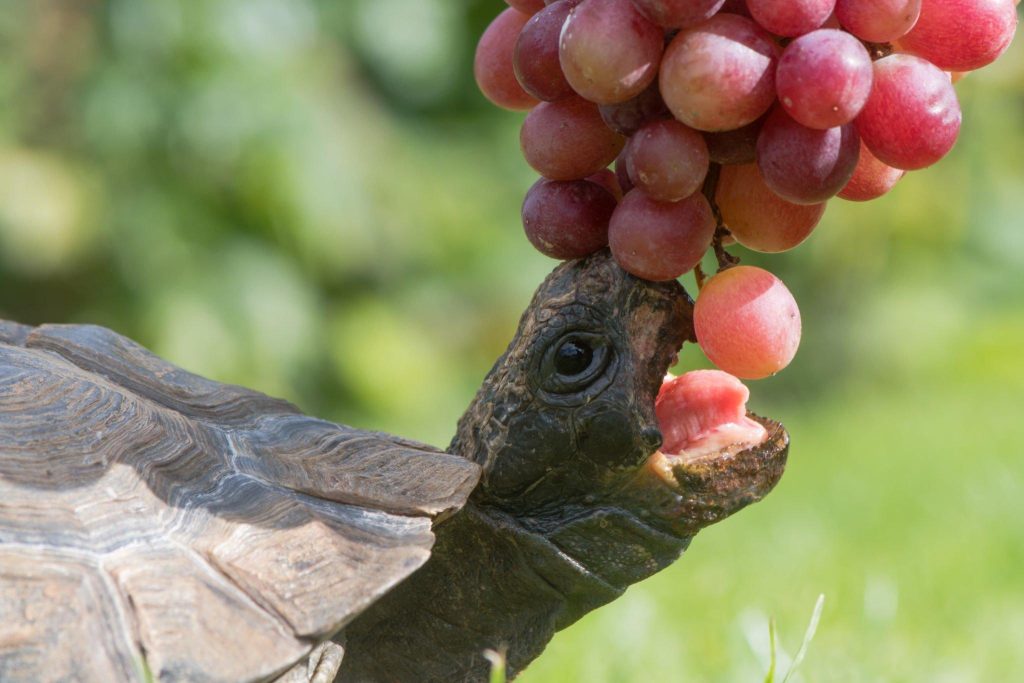
A hungry tortoise is a happy tortoise! Their eagerness to munch on their favorite foods, be it leafy greens or succulent fruits, indicates a sense of safety and well-being. However, it’s essential to strike a balance with their diet, ensuring they get the right nutrients without overfeeding.
3. Social Behavior

While many tortoises are solitary by nature, some exhibit social behaviors when they’re content. Gentle interactions with fellow tortoises, or even a calm approach towards their human caregivers, can be a sign of trust and happiness. It’s heartwarming to witness these gentle giants form bonds and connections.
4. Responsive to Handling

While not all tortoises enjoy being handled, a content tortoise will often be calm and less aggressive when you pick them up. This trust isn’t built overnight but is a testament to the bond you’ve forged with your pet over time.
Recognizing these signs of happiness can be immensely rewarding for a tortoise owner. It’s a silent nod from these ancient creatures, signaling that you’re on the right track in providing them a loving and nurturing home.
Common Signs of an Unhappy or Stressed Tortoise
While it’s a joy to recognize signs of happiness in our tortoises, it’s equally vital to be alert to signals of distress or unhappiness. A stressed tortoise can lead to health complications and decreased lifespan. By understanding the warning signs, owners can swiftly take measures to improve their pet’s environment and well-being.
1. Hiding or Withdrawal

Every tortoise enjoys its fair share of solitude, but excessive hiding can be a red flag. If your tortoise is spending more time than usual tucked away in its shell or in secluded corners, it might be signaling stress or discomfort. Such behavior could be due to a variety of reasons, from environmental factors to health issues.
2. Loss of Appetite

While occasional changes in appetite can be typical, a prolonged refusal to eat or erratic eating patterns can be a cause for concern. A stressed or unhappy tortoise might avoid food, indicating underlying health issues or environmental discomfort.
3. Aggressive Behavior

An agitated tortoise might display signs of aggression. This could manifest as snapping, hissing, or even charging towards perceived threats. While occasional assertiveness can be part of their nature, frequent aggressive behavior might be a cry for help.
4. Physical Symptoms

Just like humans, stress in tortoises can lead to physical manifestations. Symptoms like dull eyes, a sunken appearance, or irregular breathing can be indicative of unhappiness or potential health problems.
As tortoise lovers, it’s our responsibility to ensure our pets are not just surviving but thriving. By keeping an observant eye and acting promptly on these signs, we can course-correct and provide a sanctuary where our shelled companions feel safe and loved.
The Role of the Environment

It’s often said that the environment plays a pivotal role in shaping behavior, and this couldn’t be truer for tortoises. These creatures, adapted over millennia to specific natural habitats, have unique environmental needs. When these needs are met, it maximizes their happiness and health. But when they aren’t, it can be a primary source of stress and unhappiness.
1. Proper Habitat
Every tortoise species has its ideal environment, ranging from sandy terrains to lush green habitats. Ensuring that their enclosure closely mimics their natural habitat is crucial. This means having the right substrate, plants, and hiding spots, offering them a sense of familiarity and security.
2. Temperature and Lighting
Tortoises are ectothermic, meaning their body temperature is influenced by their surroundings. Maintaining the right temperature gradient and providing access to UVA and UVB light is essential for their health and happiness. An environment that’s too cold or too hot can lead to lethargy or even severe health issues.
3. Safe Enclosures
Protection is paramount. A tortoise should feel safe from potential predators, whether it’s a curious household pet or a bird of prey outdoors. Their enclosure should be secure, ensuring they’re shielded from any potential threats. Additionally, elements such as water sources should be clean and easily accessible.
4. Enrichment
Just like humans, tortoises need mental stimulation. Simple additions like rocks to climb, tunnels to explore, or toys designed for reptiles can make a world of difference in their daily life. These elements not only encourage physical activity but also provide mental challenges, ensuring your tortoise remains engaged and curious.
When we talk about a tortoise’s happiness, the environment is a silent yet profound player. By optimizing their surroundings, we offer them a slice of the wild—a sanctuary where they can be their natural, happy selves.
Health and Happiness: Two Sides of the Same Coin
In the world of tortoises, there’s an intrinsic link between physical health and emotional well-being. Often, the signs of contentment or distress in our shelled companions are closely tied to their overall health. By understanding this interplay, tortoise enthusiasts can ensure they’re addressing both the body and the soul of their pets.
1. Physical Health as a Foundation
A tortoise’s physical health lays the groundwork for its emotional state. Conditions like metabolic bone disease or respiratory issues not only impact their body but also affect their mood and behavior. A tortoise that feels good physically will often display signs of contentment, from active exploration to a keen appetite.
2. Stress and Its Physical Repercussions
Just as physical ailments can lead to unhappiness, prolonged stress can manifest in tangible health problems. Stress can weaken the immune system, making tortoises more susceptible to illnesses. It can also affect their appetite and digestion, leading to weight loss or other related complications.
3. The Importance of Regular Check-ups
Routine vet visits play a crucial role in maintaining the balance between health and happiness. Veterinarians can spot early signs of potential health issues and offer guidance on enhancing their environment or diet. Catching problems early not only helps in addressing physical ailments but also in preempting emotional distress.
4. Emotional Well-being Fuels Health
A content and stress-free tortoise is likely to have a stronger immune system, better appetite, and overall robust health. By ensuring their happiness, we inadvertently boost their body’s defenses against diseases and ailments.
In the intricate dance of health and happiness, one influences the other in a continuous loop. By being attentive to both these aspects, tortoise caregivers can ensure a long, fulfilling life for their shelled companions, brimming with joy and vigor.
Frequently Asked Questions (FAQs)
When it comes to understanding the happiness and well-being of our tortoises, several questions commonly arise. Here’s a compilation of some of the most frequently asked questions, providing quick insights for both new and seasoned tortoise owners.
1. How often should I handle my tortoise?
While many tortoises can become accustomed to gentle handling, it’s essential to strike a balance. Overhandling can lead to stress, while occasional interaction can help build trust. Gauge your tortoise’s comfort level and adjust accordingly. Some might enjoy daily interaction, while others may prefer a more hands-off approach.
2. Are tortoises solitary creatures?
Generally, many tortoise species tend to be solitary by nature. However, under the right conditions and with compatible companions, some tortoises can coexist peacefully. Always monitor their behavior closely if introducing a new companion, ensuring there’s no aggression or bullying.
3. What’s the best way to enrich my tortoise’s environment?
Offering a mix of physical and sensory enrichment is ideal. This can include adding climbing obstacles, digging areas, or even safe toys designed for reptiles. Rotate these elements occasionally to keep the environment fresh and stimulating.
4. Can tortoises recognize their owners?
While they don’t possess the same emotional depth as mammals, tortoises can indeed recognize and differentiate between individuals. Over time, with consistent interaction, many tortoises can come to associate their owners with positive experiences like feeding or gentle handling.
5. How can I tell if my tortoise is sick?
Apart from the overt signs of distress mentioned earlier, subtle changes in behavior, eating habits, or physical appearance can be indicative of health issues. Always consult with a reptile veterinarian if you suspect any health problems.
Conclusion
In the captivating journey of tortoise ownership, understanding the nuances of their happiness becomes both a responsibility and a delight. As ancient creatures that have graced our planet for millions of years, tortoises offer us a unique perspective on life, resilience, and contentment. By being attuned to their behaviors, providing an optimal environment, and ensuring their health, we don’t just cater to their physical needs but also nurture their emotional well-being.
For every tortoise enthusiast, the joy of seeing a content, healthy tortoise exploring its world is unparalleled. It’s a testament to the bond we share with these magnificent creatures—a bond that, when nurtured, promises years of mutual trust, affection, and shared happiness.


